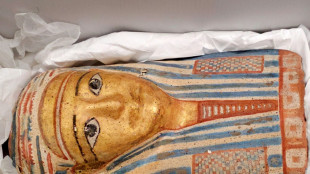
-
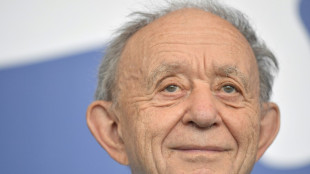 Frederick Wiseman, documentarian of America's institutions, dead at 96
Frederick Wiseman, documentarian of America's institutions, dead at 96
-
Gu pipped to Olympic gold again as Meillard extends Swiss ski dominance

-
 Copper powers profit surge at Australia's BHP
Copper powers profit surge at Australia's BHP
-
China's Gu defiant after missing out on Olympic gold again

-
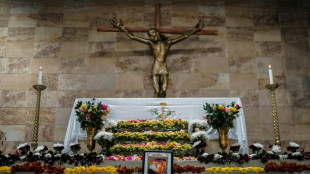 Remains of Colombian priest-turned-guerrilla identified six decades later
Remains of Colombian priest-turned-guerrilla identified six decades later
-
USA bobsleigh veteran Meyers Taylor wins elusive gold

-
 Miura and Kihara snatch Olympic pairs gold for Japan
Miura and Kihara snatch Olympic pairs gold for Japan
-
Gu pipped to gold again as Meillard extends Swiss ski dominance at Olympics

-
 Barca suffer title defence blow in Girona derby defeat
Barca suffer title defence blow in Girona derby defeat
-
Brentford edge out sixth-tier Macclesfield in FA Cup

-
 Canada's Oldham wins Olympic freeski big air final, denying Gu gold
Canada's Oldham wins Olympic freeski big air final, denying Gu gold
-
France loosens rules on allowing farmers to shoot wolves

-
 USA thrash Sweden to reach Olympic women's ice hockey final
USA thrash Sweden to reach Olympic women's ice hockey final
-
Russian poisonings aim to kill -- and send a message
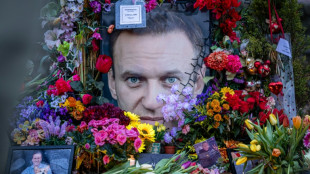
-
 France's Macron eyes fighter jet deal in India
France's Macron eyes fighter jet deal in India
-
Arsenal to face third-tier Mansfield, Newcastle host Man City in FA Cup

-
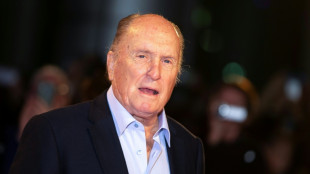 Robert Duvall: understated actor's actor, dead at 95
Robert Duvall: understated actor's actor, dead at 95
-
'How long?': Day Three of hunger strike for Venezuelan political prisoners' release

-
 Berlinale: Film director Mundruczo left Hungary due to lack of funding
Berlinale: Film director Mundruczo left Hungary due to lack of funding
-
Malinin talks of 'fighting invisible battles' after Olympic failure

-
 'Godfather' and 'Apocalypse Now' actor Robert Duvall dead at 95
'Godfather' and 'Apocalypse Now' actor Robert Duvall dead at 95
-
Sinner serves up impressive Doha win on his return

-
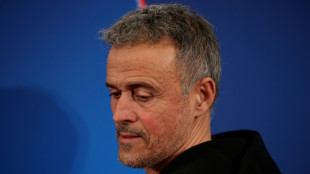 Luis Enrique dismisses 'noise' around PSG before Monaco Champions League clash
Luis Enrique dismisses 'noise' around PSG before Monaco Champions League clash
-
Grief-stricken McGrath left in shock at Olympic slalom failure

-
 Brignone leads charge of veteran women as Italy celebrates record Olympic haul
Brignone leads charge of veteran women as Italy celebrates record Olympic haul
-
Sri Lanka's Nissanka leaves Australia on brink of T20 World Cup exit

-
 England match-winner Jacks proud, confident heading into Super Eights
England match-winner Jacks proud, confident heading into Super Eights
-
St Peter's Basilica gets terrace cafe, translated mass for 400th birthday
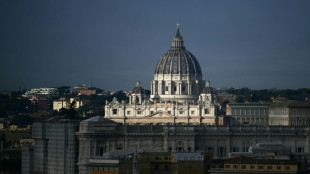
-
 Meillard hails Swiss 'golden era' after slalom win caps Olympic domination
Meillard hails Swiss 'golden era' after slalom win caps Olympic domination
-
Sri Lanka fight back after strong start by Australia's Marsh, Head

-
 Kovac calls on Dortmund to carry domestic 'momentum' into Champions League
Kovac calls on Dortmund to carry domestic 'momentum' into Champions League
-
Dutch inventor of hit game 'Kapla' dead at 80: family

-
 Benfica's Mourinho plays down Real Madrid return rumour before rematch
Benfica's Mourinho plays down Real Madrid return rumour before rematch
-
St Peter's Basilica gets terrace cafe for 400th anniversary
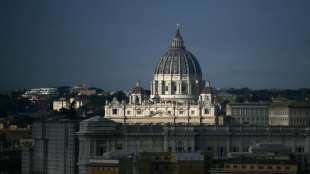
-
 Meillard extends Swiss Olympic strangehold while Gu aims for gold
Meillard extends Swiss Olympic strangehold while Gu aims for gold
-
Meillard crowns Swiss men's Olympic domination with slalom gold

-
 German carnival revellers take swipes at Putin, Trump, Epstein
German carnival revellers take swipes at Putin, Trump, Epstein
-
England survive Italy scare to reach T20 World Cup Super Eights

-
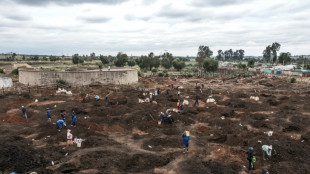 Gold rush grips South African township
Gold rush grips South African township
-
'Tehran' TV series producer Dana Eden found dead in Athens
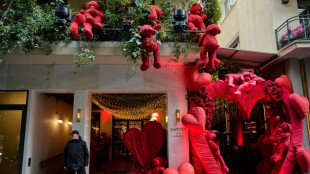
-
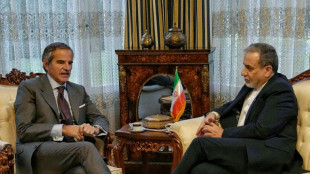 Iran FM in Geneva for US talks, as Guards begin drills in Hormuz Strait
Iran FM in Geneva for US talks, as Guards begin drills in Hormuz Strait
-
AI chatbots to face UK safety rules after outcry over Grok
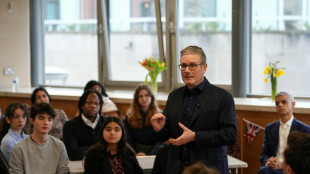
-
 Sakamoto fights fatigue, Japanese rivals and US skaters for Olympic women's gold
Sakamoto fights fatigue, Japanese rivals and US skaters for Olympic women's gold
-
'Your success is our success,' Rubio tells Orban ahead of Hungary polls
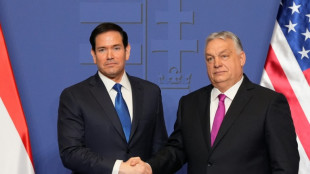
-
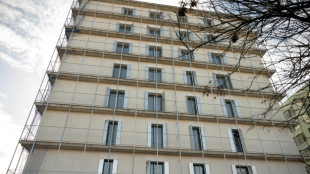 Spain unveils public investment fund to tackle housing crisis
Spain unveils public investment fund to tackle housing crisis
-
African diaspora's plural identities on screen in Berlin
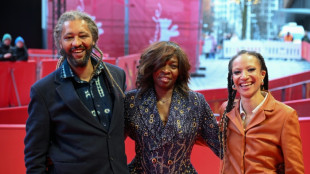
-
 Del Toro wins shortened UAE Tour first stage
Del Toro wins shortened UAE Tour first stage
-
German carnival revellers take sidesweep at Putin, Trump, Epstein

-
 Killing of far-right activist stokes tensions in France
Killing of far-right activist stokes tensions in France
-
Record Jacks fifty carries England to 202-7 in must-win Italy match


With new 'Aida' staging, Met tries out grandiose opera for the contemporary age
"Aida" has long epitomized opera at its most extravagant -- think sweeping sets, luxurious costumes and even real-live horses, an experience intended to transfix the audience with grandeur.
A beloved version of that scale helmed the Met for more than three decades -- so staging a new production of "Aida," a tale of love, war and loyalty set in ancient Egypt, was a tall order.
"Because Aida is so big and so expensive... I did definitely feel the pressure of that," director Michael Mayer told AFP in a recent interview of his production that premiered this month, adding that "I knew that there were audiences who wanted the big spectacle."
Verdi's "Aida" also has long faced criticism of Orientalism, that it offers an exoticized, reductive view of Egypt through an othering Western lens.
Addressing that was among Mayer's tasks -- to "acknowledge, even in a gentle way, the kind of imperialism and colonialism associated with a kind of fetishization of ancient Egypt," he told AFP.
"When you look at the history of Grand Opera, you see a lot of operas that are set in exotic locales," he said, citing "Aida" along with "Madama Butterfly," set in Japan, and "Turandot," set in China, as prime examples.
"There's the sense that that those cultures could be fetishized. We appreciate the beauty of them, but in modern times now, I think we're all much more conscious of Orientalism and colonialism and imperialism and the idea that these cultures were taken apart and reappropriated -- and potentially inappropriately so," Mayer said.
"And I think that contemporary audiences are not going to just swallow it hook, line and sinker, without some kind of acknowledgement that there's a complexity involved."
- 'Fresh and new' -
Mainstream critics of the new production have been, well, critical -- but refreshing a pillar of traditional opera is a delicate balance, Mayer said.
And part of that balance is toeing the line between reaching new opera-goers and satisfying the old guard -- or, how to revamp a traditional opera for a contemporary age, without losing what made it adored to begin with.
And on top of that, it has to have staying power -- a staple of the repertoire that can satiate audiences for seasons to come.
Mayer's approach to the piece involves presenting it through the eyes of a team of archaeologists unearthing an ancient tomb, before the tale of star-crossed lovers, warring empires and treason unfolds in full color.
At one point, the archaeologists are seen looting the tomb of its treasures, a reminder of the colonial context.
"I feel like my job was to be able to deliver the beautiful spectacle that audiences who love that about 'Aida' could get" he said, while also aiming to "contextualize it."
"My dream is that I can give everyone enough that it will turn them on, maybe for the first time," said Mayer, a director who in addition to working in opera has long worked on Broadway.
"I feel like if someone's coming to the opera for the first time, and they're seeing this 'Aida,' and they're like, 'Oh my God, that's like a Broadway show on crack, I can't wait to come back' -- then I feel like mission accomplished," he said.
Capturing the hearts of those audiences is vital for the art -- and the bottom line of institutions like the Met.
"The future of the opera in America is really in the hands of the young people," Mayer said.
"They have to feel like they're seeing something fresh and new," he continued, "and not living their fear, which is that they're going to go and see a museum piece that has nothing to say to them and has nothing to say to the moment that we're in."
P.Martin--AMWN
